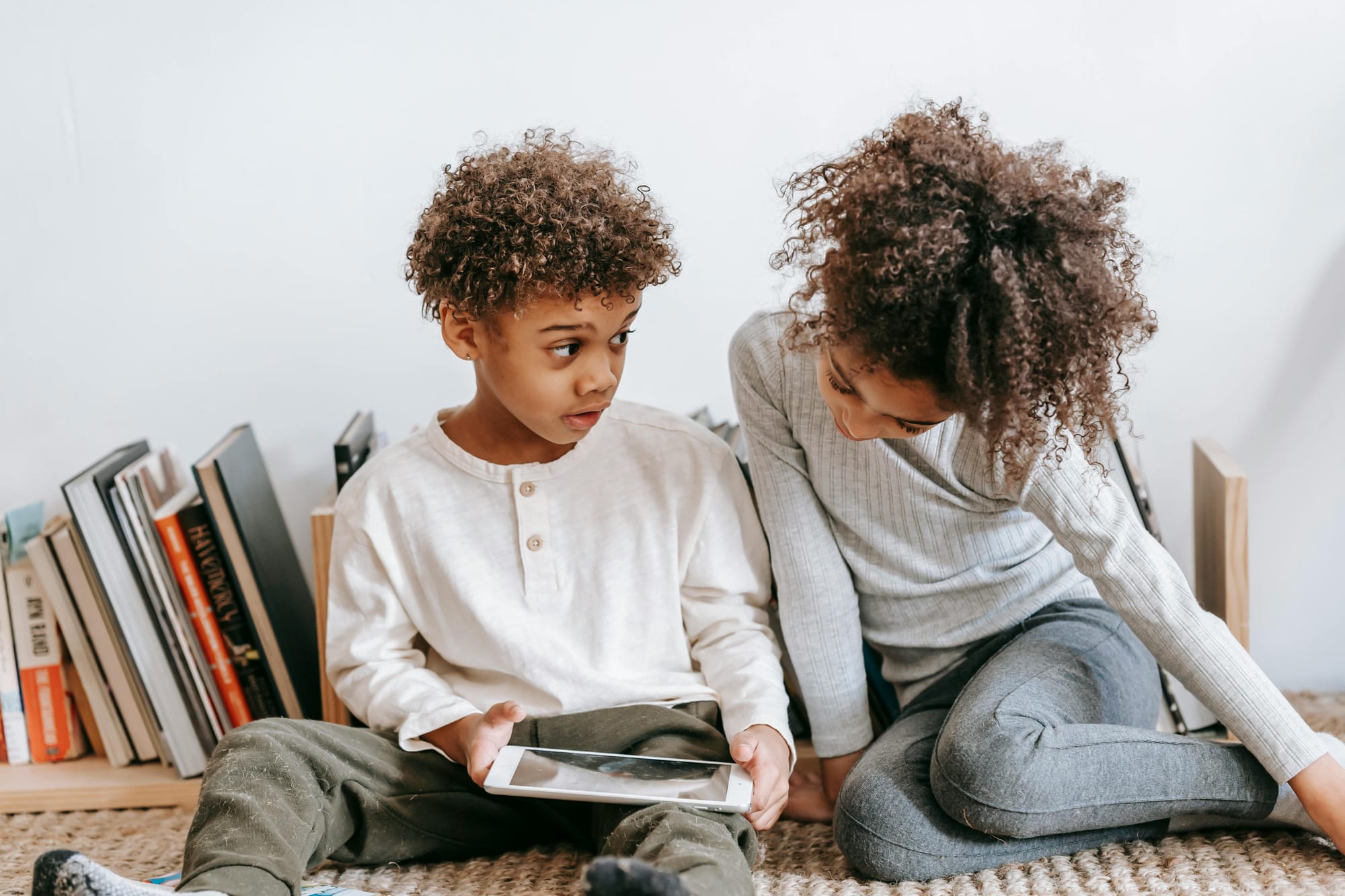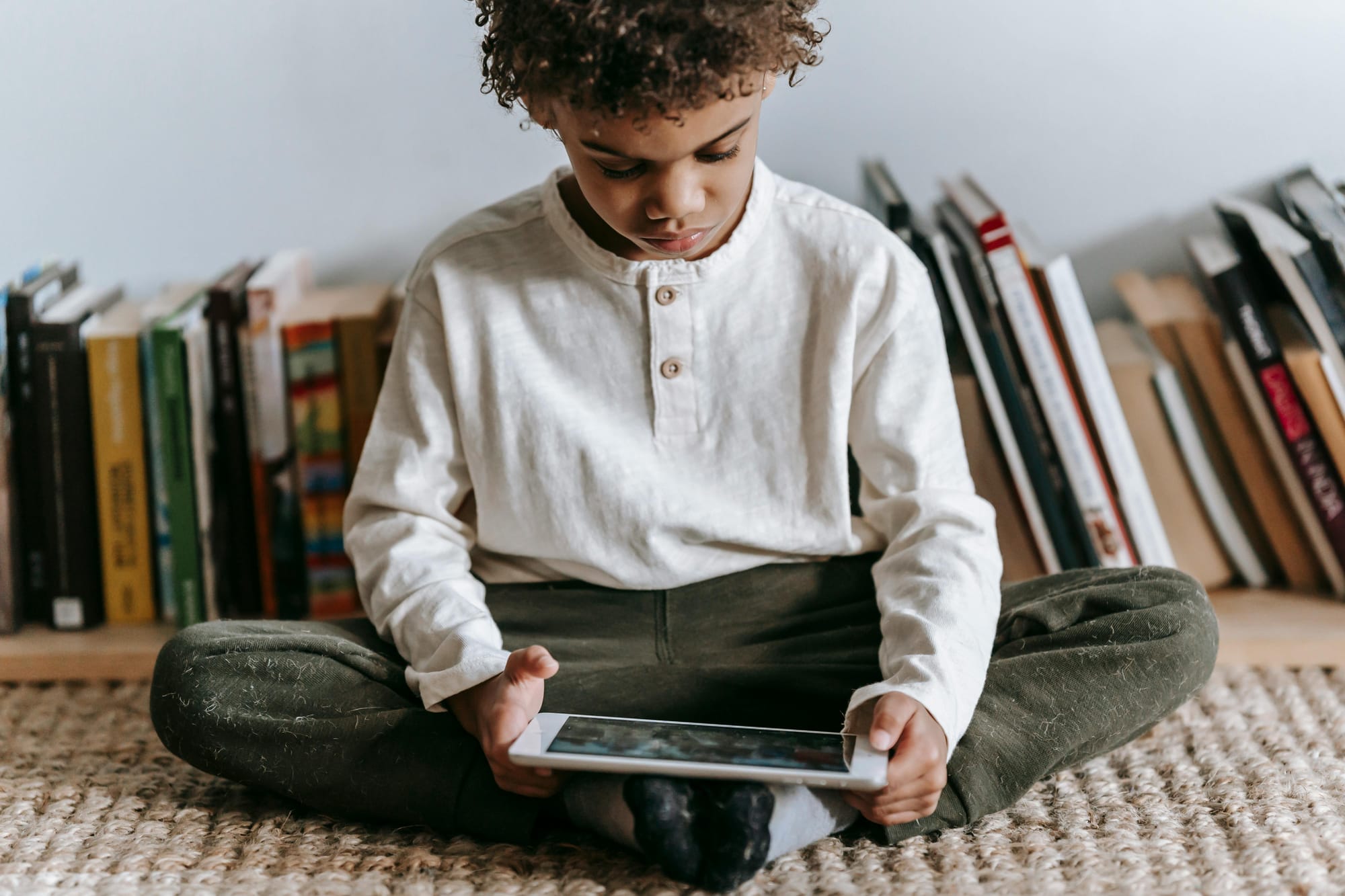Beyond Access: How NMBLC’s Google Kids Lab is Closing the Digital Divide
Discover how NMBLC’s Google Kids Lab is bridging the digital divide with storytelling, STEM skills, and a culturally rooted curriculum for New Mexico youth.

By Shannon Yvonne Moreau
It’s no longer a nice-to-have. It’s a must-have.
Why Internet Access Is Now an Educational Lifeline
According to the United Nations (UN), internet access will be a basic human right by 2030. The Substance Abuse and Mental Health Services Administration (SAMHSA) says that internet access is a super determinant of health, meaning it impacts health outcomes, healthcare access, education, and employment.
Yet millions of households across the U.S. don’t have internet. Hence the push for digital inclusion, where all individuals and communities—including the most economically disadvantaged—would have affordable, high-speed internet service; a usable device; and digital literacy training.
From Lawsuit to Learning: Google Kids Funding Fuels Innovation
Digital inclusion intersects with New Mexico Black Leadership Council’s (NMBLC) health and positive youth development areas of impact. News of the Google Kids Initiative seemed like a “manna from heaven,” says NMBLC Director Cathryn McGill. The initiative is the result of a lawsuit filed by the New Mexico Attorney General against Google for illegally collecting private information about minors. Millions of settlement dollars were set aside to promote education, privacy, and safety for children across the state.
NMBLC applied for a $300,000 grant in 2023, right after Roots Summer Leadership Academy (RSLA) ended. The grant was awarded in November, with an additional $150,000 provided by an anonymous donor. Thanks to this funding, the technology-focused Google Kids lab was added to the RSLA lineup.
Storytelling Meets STEM in Culturally Grounded Curriculum
The Google Kids lab curriculum exemplifies NMBLC’s cultural vibrancy bedrock. Students are given tablets to work with and take home as they immerse themselves in online reading and research, writing, and using Adobe Express video software to bring their own stories to life.
For the new filmmaking portion of RSLA, NMBLC brought in AMPL Labs, owned by Mayowa Tomori, one of the folks recently laid off by Meow Wolf. “Mayowa's amazing,” says McGill. “He's got a lot of experience, loves working with kids.” Tomori also brought Marie Alarcón, an experimental filmmaker and documentarian who teaches at UNM, into the RSLA filmmaking program this year.

Film as Final Exam: Students Showcase Digital Mastery
RSLA students’ achievement of creative and technological mastery will culminate in the Perspectives Film Festival, named after Albuquerque photojournalist and publisher Ronnie Wallace. “We wanted to honor his name and the name of his magazine for all the years that he worked for free for our community,” says McGill.
A panel of judges will view the students’ video projects, and the winner will be featured in the RSLA Harambee celebration.
The Fight for Digital Equity Continues
NMBLC plans to have another RSLA Google Kids program next year, as the grant’s been extended through June 2026. Unfortunately, the Department of Government Efficiency (DOGE) clawed back an additional $500,000 grant that would have further funded this work.
“Digital equity is dead in the water in Congress right now,” says McGill. “But we're on the hunt for [more funds] to show the benefits of it so that we can look for continuation.”
